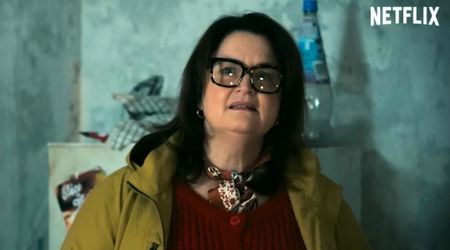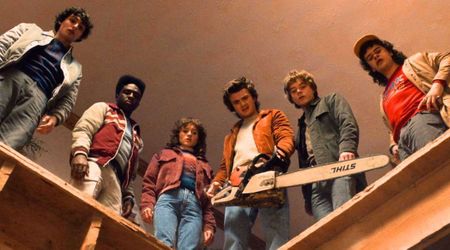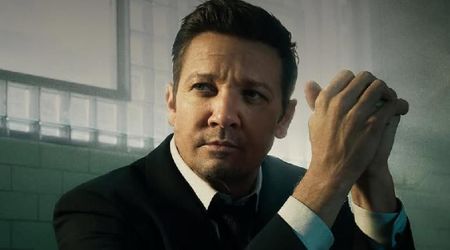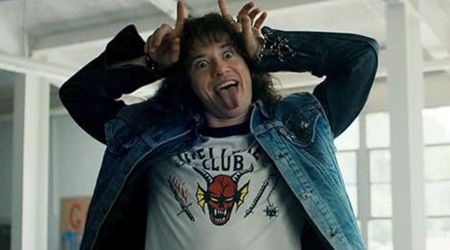Pride Month 2020: How Destiel and Johnlock queered straight TV

One of the most uncomfortable intersections between fandom and TV stars has been thanks to a show that seems destined never to end. 'Supernatural', with just a few episodes to go till its final finale, has a chequered past with its fandom, thanks to the reams of slash fiction it has inspired.
Ever since angel Castiel entered the show back in season 4, gripping Dean Winchester and raising him from perdition, many vocal shippers, straight and queer, have fantasized about there being something more to their "profound bond" than just friendship. This might be in part because Jensen Ackles who plays Dean has the unusual gift of sparking screen chemistry with most of the show's regulars. To the point that even Mark Sheppard, who at first glance isn't the sort of actor that gets shipped too often, was said to be nursing an unrequited boy crush on Dean as the demon Crowley.
In a show, where females as romantic interests seldom survive beyond a season or live to become either mother-figures or sister-figures to "the Winchester boys", what is an honest shipper to do? A look at fanfiction sites will see 'Supernatural' topping the list for slash fiction, followed by 'Sherlock'. In both fandoms, "Destiel" and "Johnlock" shippers who write fanfiction are mostly straight females. Something that is often called out by gay men who resent gay sex being fetishized by straight females. However, both these shows were also the rare unicorns that stood out for their depiction of emotionally-open male friendships - possibly why they have become such shipping favorites.
But beyond the ambit of these fandom battles, both Dean Winchester and Sherlock have become icons of alternate sexuality to queer females, specifically bisexual and asexual women. This has prompted two strains of reactions - one from the show creators themselves and the other from actors who play them.
In both cases, the show creators leaned into the queer subtext of the shows, trying to slip in an ambiguous dialogue or interaction that solidified the ship. Watson was frequently found trying to clear misconceptions about his relationship with Sherlock and of course, we have 'that' tense dialogue between Watson and Irene Adler, who both admit that though Watson and she are interested in women, they are both 'gay for Sherlock'. John doesn't confirm or deny her statement.
Similarly, in 'Supernatural', Castiel shares a much closer rapport with Dean than with Sam, the other Winchester brother. At the start, Castiel would only respond to Dean's prayers and stand uncomfortably close to him all the time - a running gag on the show which is explained by Castiel's ignorance about human concepts like boundaries. But very early on, it is established that Castiel's anchor to Earth is Dean, who he repeatedly turns to understand humankind and love them in a way he never has as an aloof angel who has lived for millions of years.
However, both shows never went beyond ambiguous subtext to actually establish a canon relationship. So much so that both shows have been accused of queer-baiting, the practice where the romantic subtext between same-sex characters is used to boost viewership but is never actualized on screen.
Tweets by writers and producers also said that while fans were free to read what they wanted to, they saw the male friendships on the show as deeply emotional but ultimately platonic. In such readings, Castiel becomes the "third brother" in the Winchester "family", and John and Watson are best friends.

It has to be remembered that when 'Supernatural' and 'Sherlock' had hit peak mania between 2010 and 2014, queer representations were few and far in-between. For a lot of LGBTQA+ teenagers and young adults, queer subtext and alternate readings of relationships between cis-gendered, heterosexual, and mostly white leads, is all that was on offer. Simultaneously, for straight females, slash fiction meant exploring relationship dynamics without the power imbalance between genders. It was a way to explore storylines where both partners were on an equal footing.
In short, both Destiel and Johnlock were born out of the need to see alternate versions of romantic relationships and dynamics that did not exist on the screen at the time. This desire to see certain kinds of pairings however also meant that the male leads were subject to extremely intense scrutiny by the fandom.
Every hug, every nod, every off-screen and on-screen interactions would be subject to reams of online speculations, uncomfortable questions at fan conventions, and the production of some pretty graphic stories and fanart. At the time, fanfiction was treated with derision, with TV hosts like Graham Norton, specifically asking stars to look at graphic fan art to elicit reactions.
Since most shippers created fanfiction and fanart in secret under pseudonyms, being "outed" as a fanfiction writer or artist was a matter of shame. This wasn't helped by the reaction of the male leads who instead of taking a matter-of-fact attitude to such speculations as many actors in 2020 do, they would often get irritated, shut down such speculation, or gently mock fans. The only exception was Misha Collins. He had a much healthier, humor-led approach to such speculation by fans, which made him much beloved in the 'Supernatural' fandom.
But for Jensen Ackles, Benedict Cumberbatch and Martin Freeman, it was an uncomfortable intersection between real-life friendships or professional relationships with co-stars and the intrusive speculations by fans. For queer fans, the subtle denigration was another sign that while the entertainment industry was ok with trying to get their views through queer-baiting, they (and their ships) had to exist in the shadows.
Thankfully, there has been a sea-change in attitudes since then and fans are no longer mocked about their ships and there are several canonical queer relationships on air, thanks largely to streaming networks like Netflix and Hulu, freed from heterosexist gatekeeping by networks.










